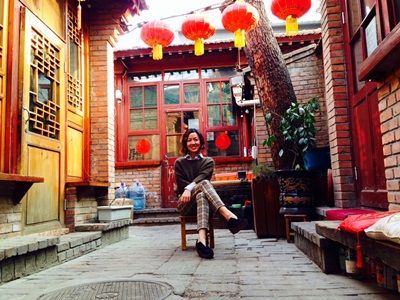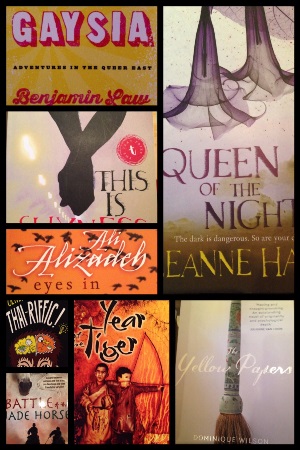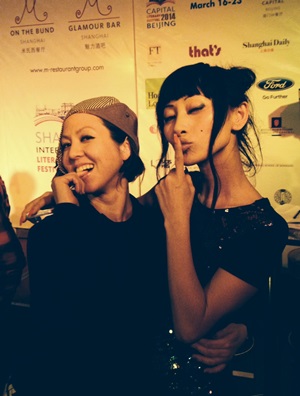08.04.14
In the final instalment of our posts from Jenevieve Chang, she heads to Beijing for the final leg of Australian Writers’ Week and meets her fellow ‘Asian-Australian’ authors selected to represent contemporary Australian literature and explore cross-cultural perspectives.
The first thing you notice about Beijing is the smog. Within minutes of landing, my whole body was working a bit harder just to breathe. The Australian Embassy staffer who had been with me since Mongolia gave me the stats: the day registered a 160 reading on the Air Quality Index on her Iphone. “What does that mean?” I asked. “It’s really not too bad. The World Health Organization’s recommended level is 50.”She smiled at my startled face. “Considering we hit over 700 at the beginning of the year, 160 really isn’t too bad.”
 |
|
Afternoon tea at the Hutong, Beijing’s cultural exchange centre |
I had arrived in Beijing for the final leg of Australian Writers Week 2014, organized every year by the Embassy. Deigned as a celebration of contemporary Australian literature, and an opportunity to explore cross-cultural perspectives, I was about to meet the other eight authors selected to represent this slice of our national soundbite: magazine contributor and author Benjamin Law; stand-up comedian and author Oliver Phommavanh; young adult fiction writer Leanne Hall; investigative journalist Pamela Williams; writer and illustrator Gabrielle Wang; children’s writer Alison Lloyd; Iranian-Australian writer Ali Alizadeh; and novelist Dominique Wilson. Each writer had been given a different tour schedule –ricocheting to different parts of the country- and culminating in the climax of official duties that lay ahead in this final week in the smoggy but impressive capital.
 |
|
Amongst fine company at Australian Writer’s Week |
Although united by the general theme of “Asian-Australian writing”, we were distinct in voice and practice. Being the only non-published writer (and feeling nebulously defined so) I felt embraced by this temporarily floating community. Each of our stories were held under the gaze of an interested but foreign lens in the overlap between politics and culture, bringing our essentially private acts of writing together into an embodied and public space. Being the performer in the group, I had my schtick down pat – more than comfortable with the extra layer of fiction the construct of performance provides to a set of words and ideas. But the trouble with speaking autobiographically is that it wrestles with the fluidity of personal memory to work and being back in China- and having just been in Shanghai, the theatre of my most dramatic recollections- the past and the present were colliding in a way that my pre-packaged story could no longer accommodate. As I searched for the truth in each moment of its re-telling, I realized that my research of being back was shifting –ever so slightly – the way I remember.
 |
|
With actress Bai Ling at the That’s Shanghai Erotic Fiction Competition |
“Writing is like carpentry.” the Pakistani writer H.M. Naqvi told us that week – the grunt work of cutting, building and assembling blocks of information into something purposeful. And so, as I roll up my sleeves and get back to work, I’ve got my eyes firmly fixed on a changing landscape: my family history is no victim narrative, but one of triumph through adversity; my marriage may have been shipwrecked, but an indomitable friendship survives; and China in 2014 isn’t quite the same as China in 2008, though some things remain the same. It’s still the perfect backdrop of hedonism mixed with officialdom: where else would I have been met actress Bai Ling, pioneer of Asian erotic journalism (a.k.a. the first Asian woman to appear on the cover of Playboy) and Australia’s ex PM on the same trip?
Jenevieve Chang April, 2014

